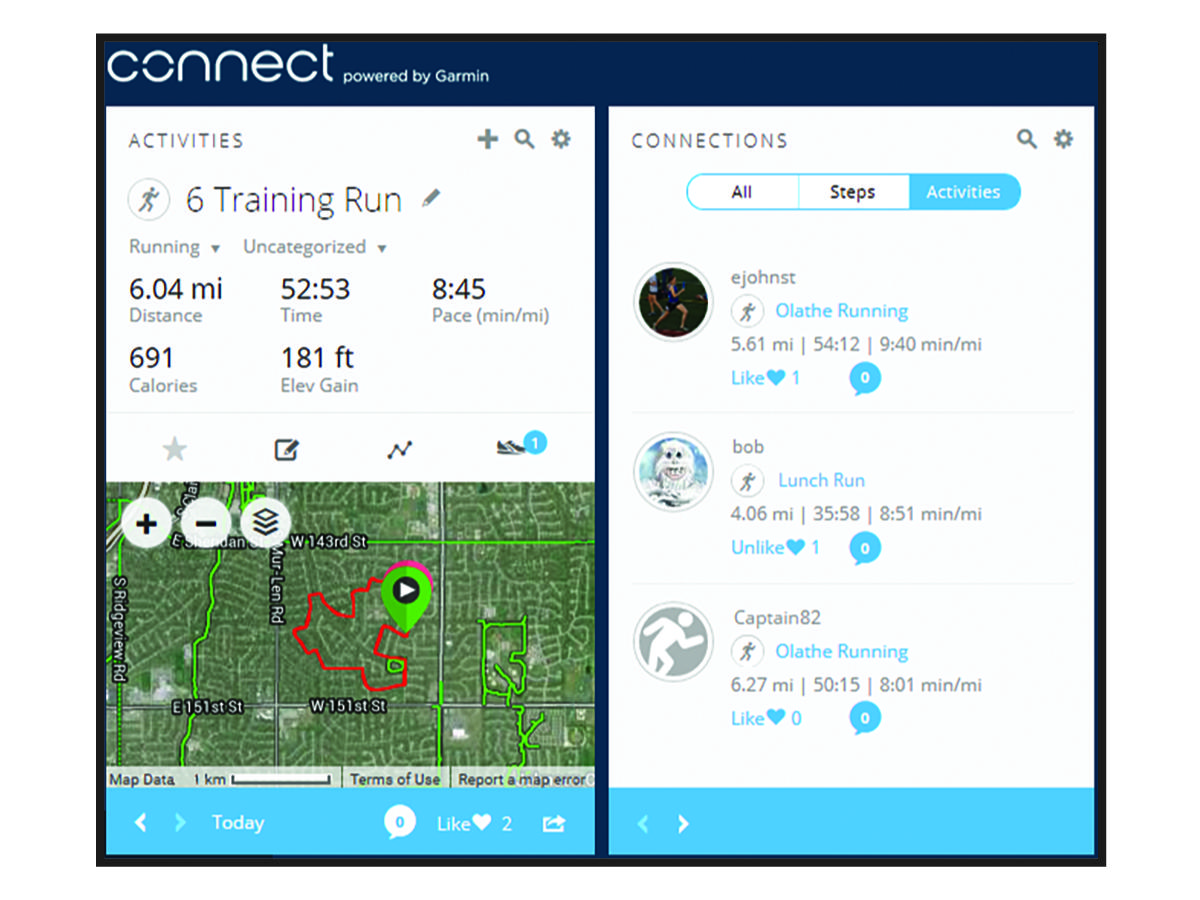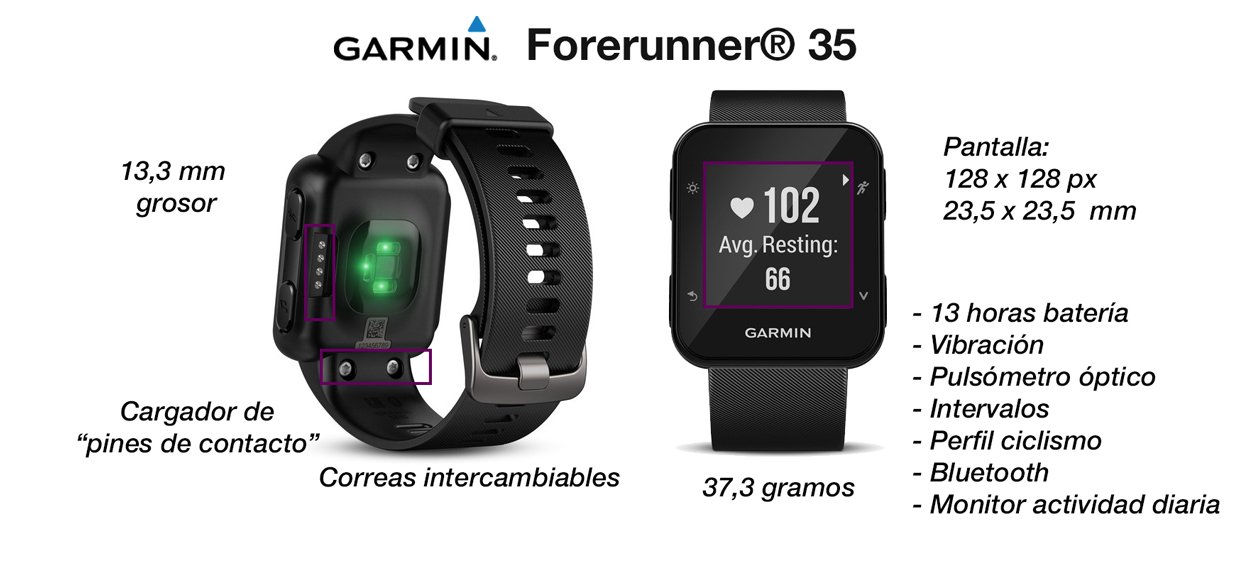
Garmin Forerunner 35, con sensor de pulso óptico | Análisis completo - Correr una Maratón - Review de Garmin, Polar, Suunto, Fitbit...

Garmin Forerunner 35- Reloj GPS con monitor de frecuencia cardiaca en la muñeca, monitor de actividad y notificaciones inteligentes, color negro : Garmin: Amazon.es: Deportes y aire libre

Garmin Forerunner 35 - Reloj GPS con monitor de frecuencia cardiaca en la muñeca, monitor de actividad y notificaciones inteligentes, color blanco : Garmin: Amazon.es: Deportes y aire libre

Correa de repuesto para reloj Garmin Forerunner 35/30, 20MM, de acero inoxidable|Correas de reloj| - AliExpress


















